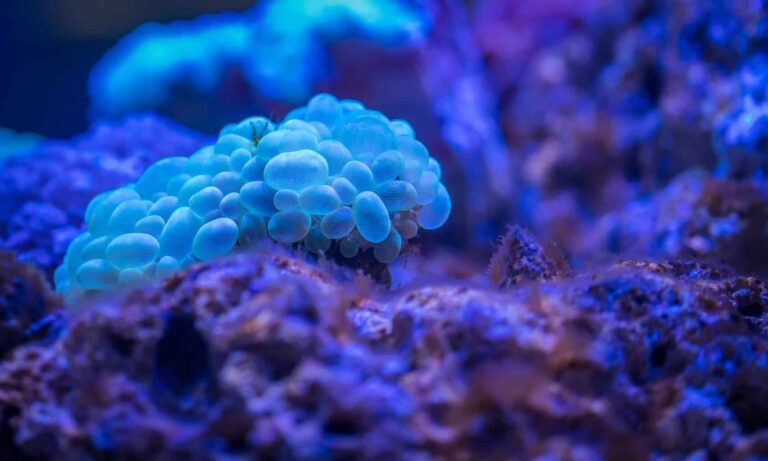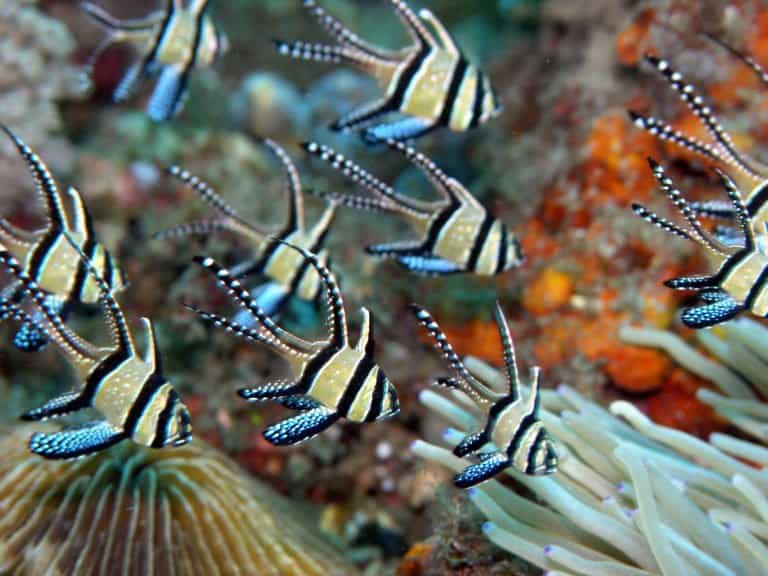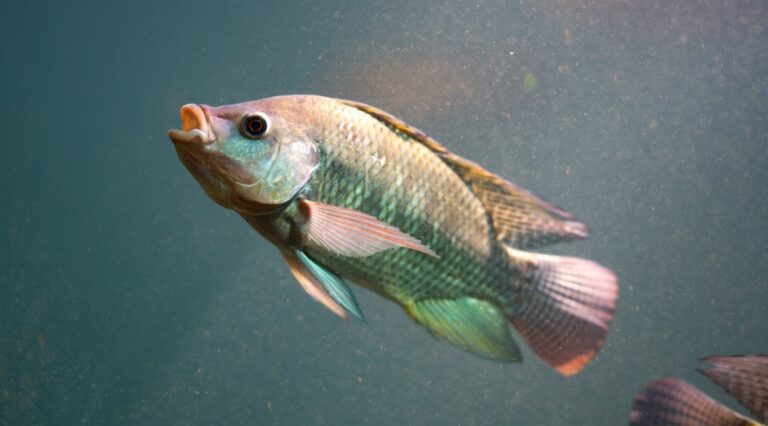Mental health is a real issue in fish, just as it is in human beings. Fish can get depressed. You can easily tell if your fish is depressed. You may notice that happy, healthy, and vibrant fish becomes lethargic with minimal movement.
Below are 4 tips on fish depression: the causes of depression in fish, tips for keeping your fish healthy and preventing depression, how to tell if your fish is depressed, and what to do if it is depressed.

Tip 1: What Causes Depression in Fish
Several factors can cause depression in fish, including:
Lack of Stimulation
According to Victoria Braithwaite, a Professor of fisheries at Penn University, the main cause of depression in fish is lack of stimulation. This is because fish are naturally curious and like to seek out novel things. Therefore, if the environment is not stimulating enough for them, they tend to get depressed.
Poor Water Quality and Low Oxygen
Poorly ventilated water or infrequent changes lead to an increased level of ammonia and nitrate. High levels of ammonia and nitrates also cause a fluctuation in the water PH, which can cause chronic stress. If these conditions are not corrected, the fish becomes acutely stressed, leading to depression.
Fluctuation in Water Temperature
It is the leading cause of depression and stress in betta fish. The water temperature affects oxygen levels and fish activity levels. Warm water causes fish to be active. However, it is lower in oxygen. Therefore, the fish can suffocate if the water temperatures are too high.
On the other hand, if the water is too cold, the fish become lethargic. Since a fish cannot regulate its body temperature, sudden fluctuations can compromise the fish’s immunity and growth or put it in fight and flight mode.
Overstocking Fish in an Aquarium
If you put too many fish in the fish tank, the fish compete for oxygen leading to low oxygen levels in the water. The water also becomes contaminated faster with fish waste, leading to high ammonia and nitrate levels.
Inadequate Tank Size for Your Fish Species
Dr. Culum Brown, a renowned ecologist, fish champion, and a professor at the Macquarie in Sydney, says that a goldfish bowl is one of the worst places to keep fish. It has limited space for the fish to move around, and since it is not automatically aerated, the water quality and oxygen levels are low.
Poor Nutrition
Malnutrition increases the risk of depression in fish. A diet low in nutrients inhibits brain growth and proper functioning. It also leads to lethargy.
Attack by Other Fish
Not all fish get along well. Therefore, if you put incompatible fish species together in one tank, they tend to fight each other or compete for food and hiding spots. The more aggressive species may overpower the weaker ones, leading to depression in the small fish.
Sickness
Sick fish are sluggish and lack appetite, which precipitates depression.
Tip 2: How to Prevent Depression in Fish
Creating a conducive and engaging environment is key to preventing depression in fish. It boosts their optimal growth and health and also prevents or decreases stress.
Below are some tips for creating a conducive environment for your pet fish.
Create an Engaging Environment for the Fish.
Add plants to the aquarium for the fish to nibble on. Create cages for them to swim through. Also, put in some decorations. They will make the aquarium more visually pleasing and provide entertainment for the fish, enabling them to de-stress and promote their brain growth. However, avoid overcrowding the fish tank as it could make it difficult for the fish to maneuver around and for proper oxygen flow.
Change Water Frequently
The standard recommendation is to change 25% of the water every two to four weeks. However, change 20-25% of the water weekly if the fish tank is heavily stocked. You can also add a conditioner to the water to help eliminate ammonia and nitrates and boost oxygen levels.
Control Water Temperature in the Aquarium
The key to preventing temperature fluctuation is using a high-quality aquarium heater suitable for your tank size. The right temperature setting depends on the type of fish as follows:
- 68F and below for cold water fish
- 55-75F for temperate fish
- 75-80F for tropical fish
Also, make sure that the fish tank is placed away from heating and cooling sources such as direct sunlight, air conditioning units, radiators, cooling or heating vents, or directly opposite the door. Use a thermometer to monitor water temperatures closely.
Only Put Compatible Fish Together
Most freshwater fish are non-aggressive, so they co-exist well with other fish species. For example, tetras, danios, zebrafish, swordtails, etc. Some species do better in a school than solitary fish, e.g., guppies, larger tetras, danios, and mollies.
Territorial fish, such as betta fish, loaches, and knife fish, are not good community fish. Others, such as catfish, are predatory and would eat small fish if put together.
Provide Proper Nutrition
Most fish do well on fish flakes as they are nutritionally complete as they contain protein, carbohydrates, lipids, and micronutrients. Large carnivorous fish are fed live food such as crickets and worms. Also, add some aquarium plants, such as anacharis, for the fish to munch on. You may also incorporate fruits and vegetables for the fish.
Tip 3: How to Tell If Your Pet Fish Is Depressed

Below are some signs and symptoms that your pet fish may be depressed:
- Loss of appetite. You may notice that your fish does not want to eat at all or that their food intake has reduced significantly
- Staying on one side for too long. It could be that the fish is sad, lethargic, or keeping off other aggressive fish
- Avoiding other fish. The fish may be disengaged, or the other fish could be aggressive toward them
- Gasping for air at the surface of the water. It may indicate a lack of oxygen in the water or poor water quality
- Frantic swimming pattern. When depressed, fish tend to swim in an odd pattern. For example, you may notice that they are moving their body frantically but staying at the same place, attempting to swim upwards but then crashing at the bottom of the tank, rubbing against rocks and gravel, or locking their fins. These are signs that the fish is stressed; if left unattended, the stress can lead to severe depression
- Loss of coordination. The fish may lose balance or buoyancy control, whereby it sits on the tank floor or floats upside down in the water
- Rapid gill movement. Rapid gill movement is an indication of labored breathing. Rapid breathing can result from high ammonia and low oxygen levels, stress from aggression by other fish, high water temperature, etc.
- Change in skin color. It is often an indication of sickness. For example, cloudy skin may be caused by a bacterial or fungal infection, while skin lesions may be caused by hyperemia or hemorrhage
Tip 4: What to Do If Your Fish Is Depressed
The key to depression treatment for fish is identifying the main cause, eliminating it, and providing a conducive environment for your pet fish. If the cause of depression is sickness, have a vet examine the fish and diagnose and treat the disease.
Provide a vibrant tank environment. Place plants and decorations strategically in the tank to give the fish hiding spots and places to maneuver. Ensure that the tank size is enough for your fish species, size, and the number of fish.
Monitor the water temperature and pH level to ensure they are within an optimal range. Also, keep water quality in check by changing it regularly. Reduce the amount of light in the tank and the surrounding environment.
Conclusion
There is minimal scientific information on mental health issues in fish and other aquatic animals. But the minimal information available indicates that fish depression is real. The main causes are social or environmental stress. However, depression in fish can also be caused by disease.
Therefore, fish owners are responsible for providing a conducive environment for their pet fish to prevent depression. You should also be on the lookout for any signs of poor mental health in your fish and address them immediately. Aside from offering depression treatment, correct any environmental aspects that may be causing the fish to be depressed.






